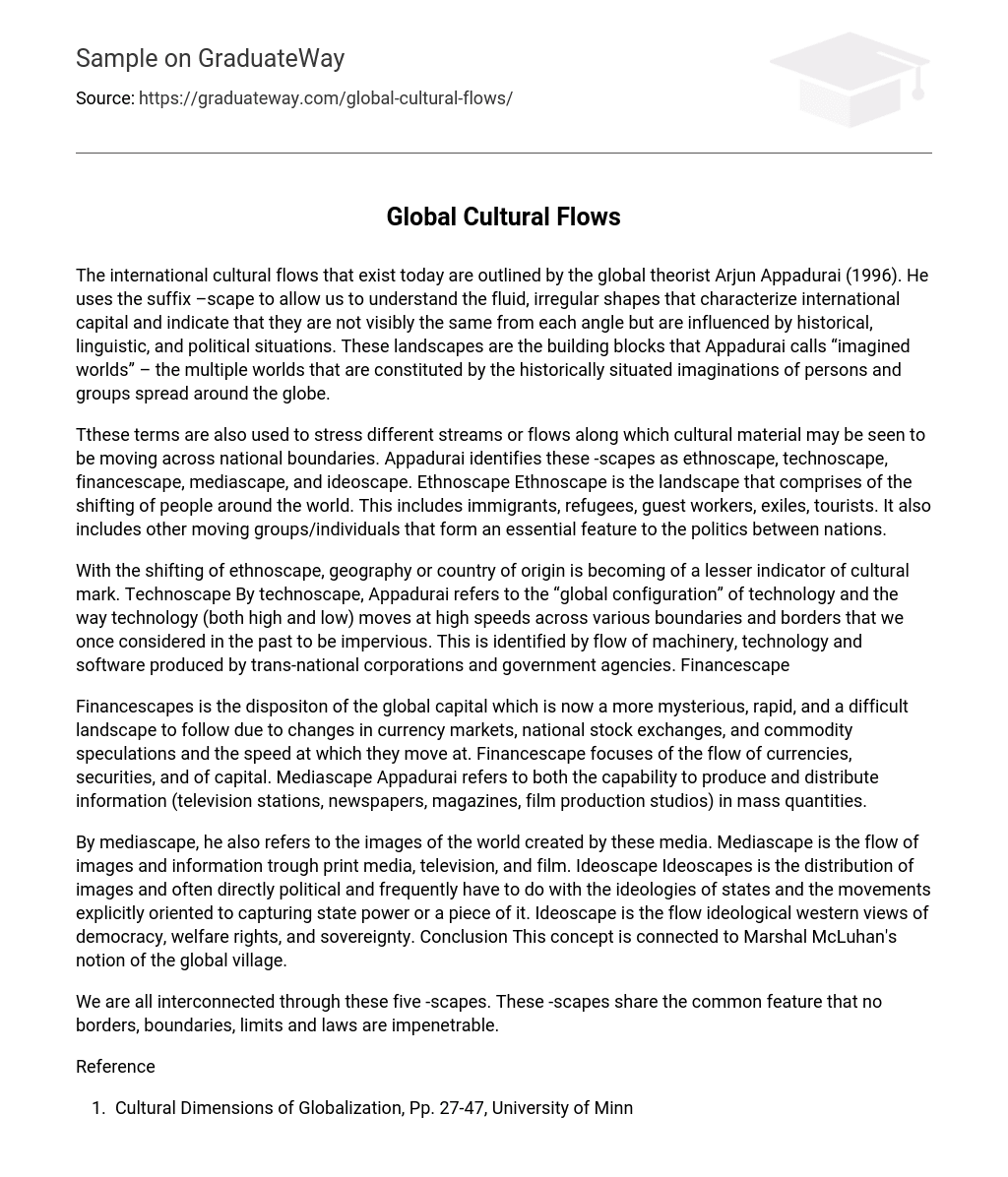The international cultural flows that exist today are outlined by the global theorist Arjun Appadurai (1996). He uses the suffix –scape to allow us to understand the fluid, irregular shapes that characterize international capital and indicate that they are not visibly the same from each angle but are influenced by historical, linguistic, and political situations. These landscapes are the building blocks that Appadurai calls “imagined worlds” – the multiple worlds that are constituted by the historically situated imaginations of persons and groups spread around the globe.
Tthese terms are also used to stress different streams or flows along which cultural material may be seen to be moving across national boundaries. Appadurai identifies these -scapes as ethnoscape, technoscape, financescape, mediascape, and ideoscape. Ethnoscape Ethnoscape is the landscape that comprises of the shifting of people around the world. This includes immigrants, refugees, guest workers, exiles, tourists. It also includes other moving groups/individuals that form an essential feature to the politics between nations.
With the shifting of ethnoscape, geography or country of origin is becoming of a lesser indicator of cultural mark. Technoscape By technoscape, Appadurai refers to the “global configuration” of technology and the way technology (both high and low) moves at high speeds across various boundaries and borders that we once considered in the past to be impervious. This is identified by flow of machinery, technology and software produced by trans-national corporations and government agencies. Financescape
Financescapes is the dispositon of the global capital which is now a more mysterious, rapid, and a difficult landscape to follow due to changes in currency markets, national stock exchanges, and commodity speculations and the speed at which they move at. Financescape focuses of the flow of currencies, securities, and of capital. Mediascape Appadurai refers to both the capability to produce and distribute information (television stations, newspapers, magazines, film production studios) in mass quantities.
By mediascape, he also refers to the images of the world created by these media. Mediascape is the flow of images and information trough print media, television, and film. Ideoscape Ideoscapes is the distribution of images and often directly political and frequently have to do with the ideologies of states and the movements explicitly oriented to capturing state power or a piece of it. Ideoscape is the flow ideological western views of democracy, welfare rights, and sovereignty. Conclusion This concept is connected to Marshal McLuhan’s notion of the global village.
We are all interconnected through these five -scapes. These -scapes share the common feature that no borders, boundaries, limits and laws are impenetrable.
Reference
- Cultural Dimensions of Globalization, Pp. 27-47, University of Minnesota Press, 1996. Arjun Appadurai.
- Wikipedia. Retrieved 14 Nov, 2012, from http://en. wikipedia. org/wiki/Arjun_Appadurai
- Global Cultural Flows. Retrieved 14 Nov, 2012, from http://ccit205. wikispaces. com/Global+Cultural+Flows





